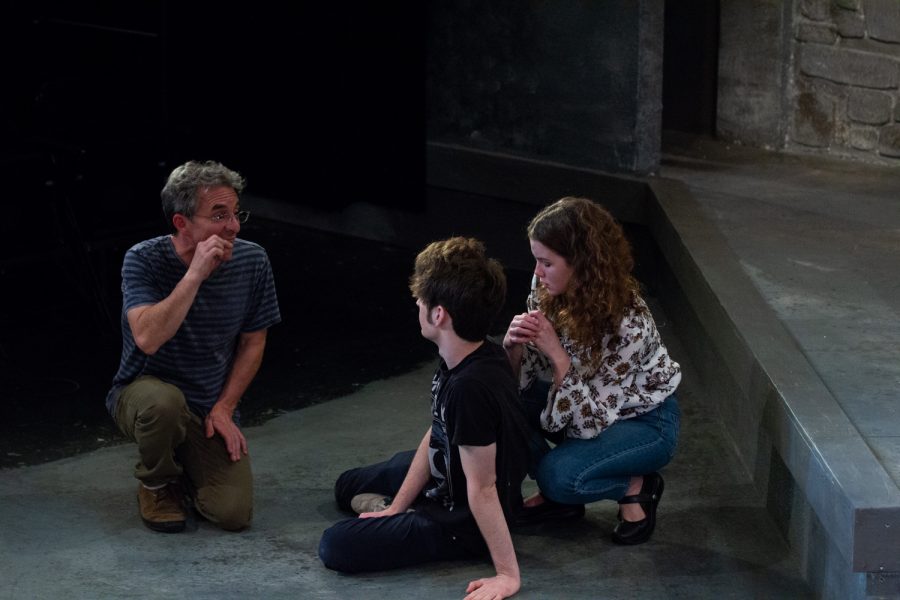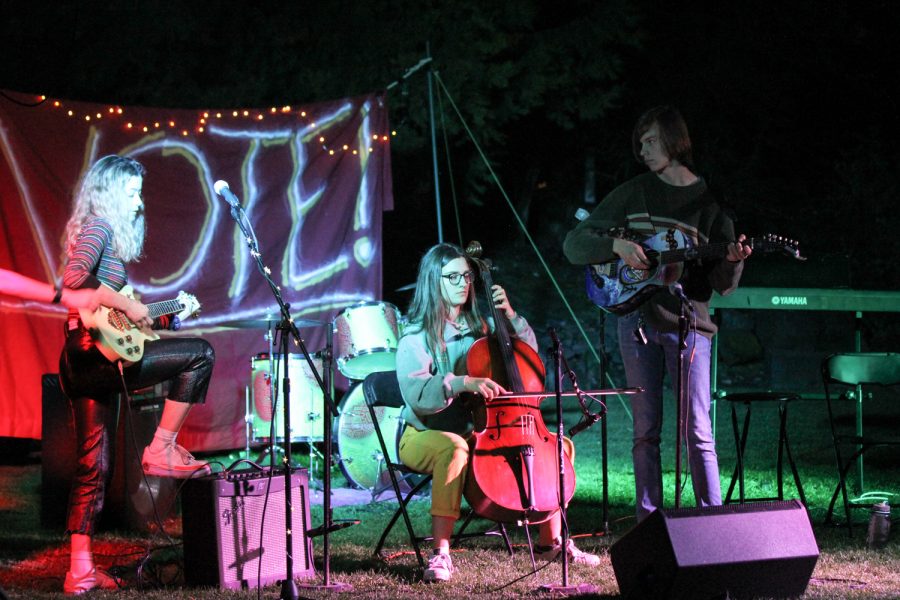Whitman Professor Scott Elliott’s 2013 novel, “Temple Grove,” has become a finalist in the Washington State Book Awards for fiction. The winner of the award will be announced in Seattle on Oct. 10, and the competition includes “We Live in Water” by Jess Walters, author of the New York Times best seller “Beautiful Ruins.”
“Temple Grove” is set in the Olympic peninsula area of Washington and tackles everything from environmentalism to mistaken identities to the philosophy of the Makah native tribe that inhabits the area. Written over the course of over 10 years, the novel features multiple points of view (including that of a cougar) and examines those issues from each of them.
“The story is about tensions in the place between conservation and extraction,” said Elliott.

Despite his roots in the south, Elliott was drawn to write about the Olympic peninsula because of his maternal grandparents. When he visited the area, he was inspired by its environment and his family connection to it. He’d stare out at the crashing waves on the coast, and reflect on the place being the farthest western point of the lower 48: the end of the United States.
“The place as it had manifested itself in me was waiting to be written about,” said Elliot, “Then it was a matter of finding out the best characters and the best story to sing this place”
Throughout decade it took to write, “Temple Grove” changed drastically in change in content. Elliott’s publisher, the University of Washington Press, urged him to incorporate strands of Makah culture into the story. While researching Makah history, Elliott discovered that they traced their ancestry to tribes on Vancouver Island, meaning that people of the tribe looked out at the same ocean as Elliott, but from a very different perspective.
“What I thought was the end of the world was the beginning of their world,” said Elliott.
When he started the novel, Elliott did not have any children. Now with a father’s perspective, he approached some scenes in the book in a new light. For a scene when a mother drops her three-month old baby off of a bridge, Elliot always planned on saving the child, but having children of his own gave the moment more gravity.
Despite his long-standing interest in the area, Elliott learned a lot about the Olympic Peninsula by sharing his work with people from the area and finding inaccuracies and mismatches in his version of the world.
“You encounter readers who refute you…and you kind of want to be refuted,” said Elliott, “As a good novelist, I think it’s important to absorb that criticism and then incorporate that into a better vision of the world you’re trying to create.”
Now on sabbatical, Elliott is working on three new projects. The first is a collection of short stories based on recordings his grandfather made while working at a hamburger stand in Kentucky. The other two works are humorous novels about book club culture in the south and a barge adventure in British Columbia. Just like “Temple Grove,” Elliott’s new projects are firmly rooted in their location.
“I ground these novels in place,” said Elliot, “It seems like projects come to me and tell me that they want to be written, so I feel like I don’t have a lot of control aside from deciding to follow a project where it wants to take me and seeing it through, which, with a novel, is no small task.”









